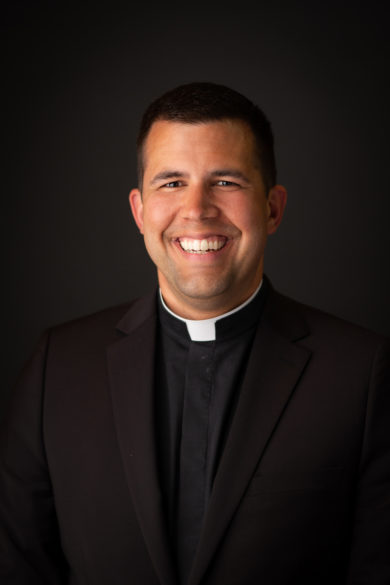The road to priesthood is a long-haul. Once a man is accepted as a seminarian for the diocese, he can spend anywhere from 6-9 years in preparation for ordained ministry. During those years, he must be docile to the Holy Spirit and to the instruction of the church in order to be well-prepared to serve the People of God in his diocese. Priestly formation focuses on four dimensions of development: human, spiritual, intellectual and pastoral. In the next four issues I will take each of these dimensions and break it down.

The human dimension is the “everyday” dimension of the man. What habits/character traits/virtues of a candidate create a bridge between himself and his flock as he helps to lead them to the Lord? What habits/character traits/vices create a stumbling block? This is the most basic part of priestly formation, and the human dimension is developed with the most basic of requirements in the seminary. Do you wake up on time for prayer? Are you pleasant at the breakfast table? What are your conversation skills? Are you comfortable speaking with someone who is much older/younger than you?
Everyone will be at a different stage of development when they enter the seminary, but we all have traits that we can hone and develop as we seek to better relate to our surroundings. I believe that one of the most important traits that a man seeking priesthood must have is self-awareness. If we are humbly aware of our struggles and imperfections and we are honest about them, then we can move forward in peace and really seek to find the Lord in that struggle for improvement, but if we seek to hide our flaws from others and act like they are not there, then this is a recipe for misery, both for ourselves or those around us.
The seminary is a place where honest and open communication about human formation is encouraged. Seminarians are encouraged to “fraternally correct” their peers if they witness a human formation issue themselves. Candidates regularly meet with a formation adviser who serves as a mirror for the man as he lives in the community, and yearly self-evaluations and faculty evaluations provide updates on progress. Human formation, however, continues for a lifetime. We are all called to be (as Bishop Robert Barron would term it) “great-souled,” men and women who are open to others and serve as witnesses to Christ’s love in the world. Human formation in the seminary provides many practical tools for men to be good, well-adjusted and helpful priests, but that work must continue beyond ordination.
